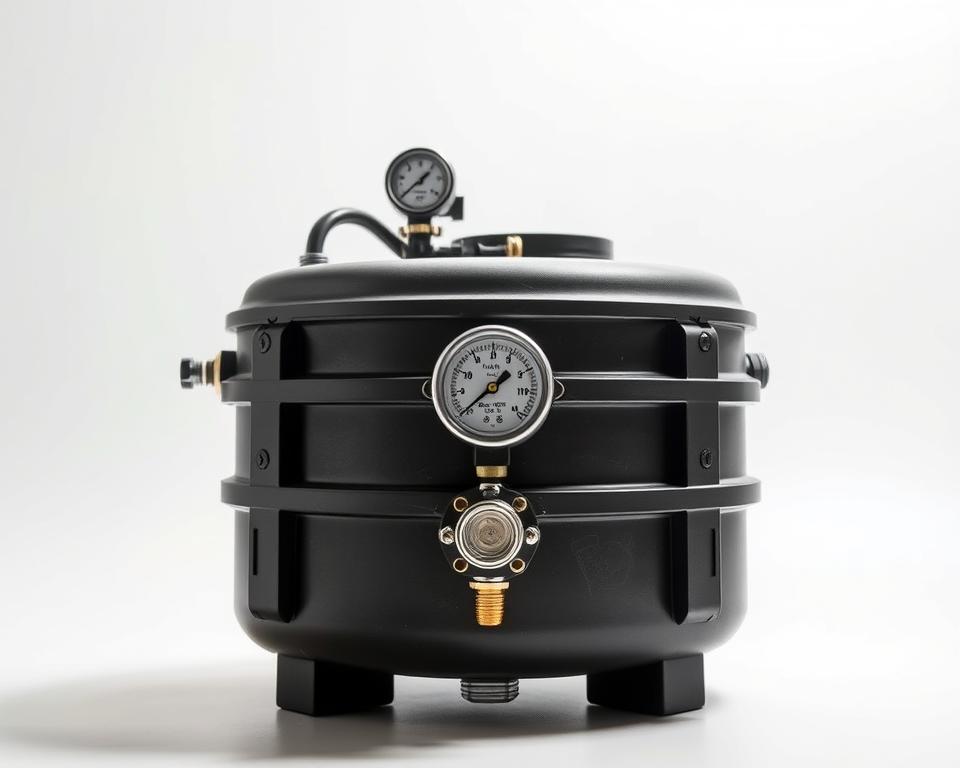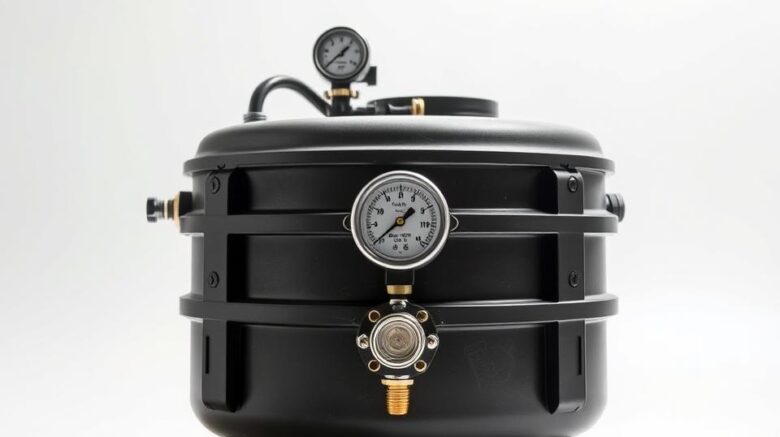RV Septic Tank Service: Essential Care Tips
Curious about what happens to your RV’s Septic tank while you’re on the road? It’s about more than avoiding unpleasant scents. Keeping your RV Septic tank in good shape guarantees hassle-free trips. A properly cared-for system avoids messy incidents and costly expenses. Yet, many ignore this critical care. Within this article, we unpack the necessity for regular black water pumping service. We’ll focus on why maintenance matters and share tips for servicing your recreational vehicle’s Septic tank. Get ready for carefree adventures!
Major Highlights
- Regular RV Septic tank service is critical for top performance.
- Understanding your RV Septic system enables you to avoid costly repairs.
- Proactive maintenance wards off unpleasant odors and clogs.
- Create a pumping schedule matched with your usage.
- Practice best practices for emptying your holding tanks.
- Bypass common mistakes to lengthen the life of your Septic system.
- Know when to enlist professional help for Septic services.
Understanding RV Septic Systems
An RV Septic system is key for any camper. It houses multiple holding tanks that manage waste properly. You’ll find three main tanks in an RV: the fresh water, the gray, and the black tank. The fresh water tank delivers clean water for drinking and cooking. Meanwhile, the gray tank holds wastewater from sinks and showers, promoting cleanliness. The black tank, specifically for toilet waste, also has a vent to cut odors.
Preserving a healthy camper sewage system demands knowing how these parts interact. Regular checks of the tank levels are essential to avoid overflow and ensure everything runs smoothly. Getting to know the termination valves is crucial too. These valves are key in effectively handling waste disposal. By familiarizing yourself with these components, you can keep your RV in great shape and enjoy your travels without unwanted hassles.
| Reservoir | Purpose | Volume |
|---|---|---|
| Fresh Water Tank | Supplies drinking and cooking water | 30-100 gallons |
| Gray Tank | Stores wastewater from sinks and showers | 30-60 gallons |
| Black Tank | Stores toilet waste | 30-50 gallons |
Benefits of Regular RV Septic Tank Service
Regular RV Septic tank service is central to maintaining your system effective and long-lasting. Without adequate maintenance, you could face system failures, bad smells, and costly repairs—issues that interrupt your adventures.
Neglecting the upkeep of your RV’s Septic system may cause it to back up. This not only slows your RV’s function but also your comfort levels. A clean and regularly cleaned system is vital for trouble-free trips, providing you a serene travel experience.

Scheduled maintenance lengthens your sewage system’s lifespan and preserves a clean living space. Watching your Septic tank helps you catch issues early. This foresight cuts costs and stress, granting you confidence during your journeys.
How Often to Pump Your RV Septic Tank
Figuring out the best schedule for RV Septic tank maintenance depends on the vehicle’s usage. For those continuously on the road or living in their RVs, it’s recommended to drain the black tank every three to five days. This practice ensures cleanliness and stops unexpected issues during voyages.
Weekend adventurers can generally wait until they return home to pump their Septic tank. Letting waste in the tank too long, though, can cause build-up that hinders the tank’s function and smell control. It’s crucial to monitor the tank’s level closely, get ready for disposal once it hits ≈66% full to keep everything running smoothly.
The capacity of your Septic system, along with how you use your RV, will dictate when to pump. Being aware of these aspects enhances your RV’s performance and minimizes the dangers of poor waste management.
| Usage Pattern | Recommended Pumping Frequency | When to Pump Right Away |
|---|---|---|
| Frequent Usage | Every 3-5 days | Tank is two-thirds full |
| Weekend Trips | After return home | Unpleasant odors or slow drainage |
| Extended Trips | Every 2-3 days | Visual indicators of fullness |
Smart Tips for Draining RV Holding Tanks
Effectively managing a recreational vehicle’s holding tanks is essential for a enjoyable camping experience. Start by draining the black tank first. This method enables the gray water to flow through and flush out the hose. Be sure the use of a high-quality sewer hose for a tight connection and to cut spills. Once the tanks are emptied, completely flushing the black tank is vital. Employing a built-in black tank flush or comparable alternatives can dramatically cut residue.
After the emptying process, it’s critical to close both valves tightly. This action is important to keep a fully operational Septic system. Additionally, RV owners must rely on dump stations properly and comply with local laws. Regular cleaning practices for recreational vehicle Septic tanks are key. They preserve the system’s optimal functionality and avoid future odors.
How to Stop RV Odors & Clogs
To manage odors and avoid clogs in your RV, careful attention is essential. The task starts with verifying enough water in the holding tanks. Adequate water helps in breaking down waste effectively, lowering bad smells.
Picking suitable toilet paper is essential in this process. Opt for RV-safe toilet paper that breaks down quickly, avoiding clogs. This small adjustment greatly supports maintaining seamless waste flow.
Employing enzyme-based treatments can further improve waste decomposition and odor control. These bio solutions aid keep your RV smelling fresh. It’s also crucial to regularly examine vent pipes for obstructions to guarantee good airflow and prevent odors from infiltrating your living area.
Common Mistakes to Avoid with RV Septic Maintenance
Keeping your RV’s Septic system properly is essential for its effectiveness and longevity. When non-biodegradable items like wipes or feminine products are flushed, they can cause significant blockages. These blockages can lead to various problems that are difficult to resolve.
Not using enough water when flushing can also harm the system. It leads to waste buildup, resulting in foul smells and potential damage. Furthermore, a common mistake at full hook-up sites is leaving the black tank valve open. This lets waste to pool at the tank’s bottom.
Preventive measures involve regularly flushing and rinsing tanks after emptying them. Failing to keep up maintenance can escalate into significant issues requiring pricey repairs. Being proactive and knowledgeable safeguards both your RV and your finances.
Calling in the Pros for RV Septic Service
Understanding when to seek professional RV Septic services is critical for maintaining a healthy Septic system. Some signs suggest the need for expert intervention. If you notice slow-draining tanks or experience persistent foul odors wafting from your RV, it is smart to act promptly. These signs often mean underlying issues that need a thorough Septic tank service for resolution.
Visible leftover waste after emptying can also reveal problems within your Septic system. This situation may not clear with routine maintenance and may call for the use of specialized equipment. Professionals are prepared to address complex challenges via tools, such as high-pressure water jets, to deliver a comprehensive cleaning process.
Prompt professional assistance can make a significant difference. Minor troubles can quickly escalate into more severe complications without proper care. Investing in professional RV Septic services protects the integrity of your system and prolongs its lifespan.
| Problem Indicators | Suggested Response |
|---|---|
| Slow draining tanks | Contact professional RV Septic services for assessment |
| Persistent foul odors | Schedule Septic tank service for diagnostics |
| Visible leftover waste | Seek immediate assistance from a professional |
| Frequent clogs | Consider expert cleaning solutions |
Ensuring Long-Term RV Septic Health
Long-term care for RV Septic systems calls for attention past basic pump-outs. Doing deep cleaning of tanks every few months stops buildup and prolongs system life. Checking dump valve seals on schedule prevents leaks. Additionally, sanitizing the system maintains it clean and functioning well.
It’s crucial to monitor tank sensors to confirm they work correctly. Incorrect readings may cause over-filling, impacting performance. Routine sensor checks and tweaking maintenance schedules can ward off this problem.
| Maintenance Task | How Often | Benefits |
|---|---|---|
| Deep Cleaning Tanks | Every 3-6 months | Stops residue accumulation |
| Inspect Dump Valve Seals | Monthly | Prevents drips |
| Sanitize System | Every 6 months | Keeps odors down |
| Monitor Tank Sensors | Monthly | Prevents over-fill |
Proactive maintenance is key to your RV Septic system’s long-term health. It sets up enjoyable and carefree travel experiences.
Why Choose All In Sanitation for RV Septic Needs
All In Sanitation specializes at crafting RV Septic services that fit each client’s unique needs. Whether it’s routine pump-outs or full tank cleaning, they grasp the essential role of a well-functioning Septic system in your RV’s performance.
With extensive expertise in RV Septic systems, All In Sanitation delivers top-tier guidance on maintenance and care. Their team is well-versed in the particular challenges RV owners face and offers effective solutions when troubles arise.
Selecting All In Sanitation allows RV enthusiasts dive in their journeys, handing over Septic concerns to a dependable ally. Their dedication to excellent service provides peace of mind and boosts the pleasure of adventures on the open road.
In Closing
Maintaining your RV Septic tank is critical for hassle-free travels. It’s necessary to understand your system and stay on top of regular services. This guarantees you won’t face unexpected issues on your journey. These key steps include frequent pumping and adopting sound waste management practices.
Thorough long-term care keeps your system in excellent condition. By implementing the provided maintenance tips, you can enhance your travel experience. This method helps avoid expensive repairs later. Bear in mind, avoiding common errors and knowing when to obtain professional help are vital.
In the end, being prepared in your RV Septic system’s maintenance secures a hassle-free adventure. It allows you to focus on forming lasting memories. So, take these steps to heart and savor your road trips to their fullest.
